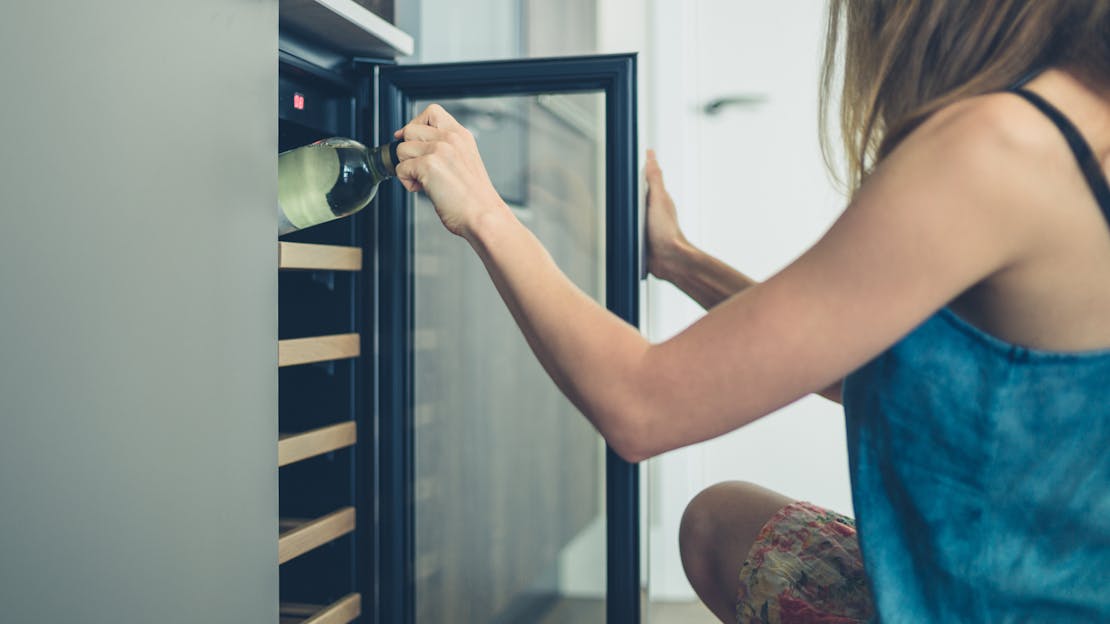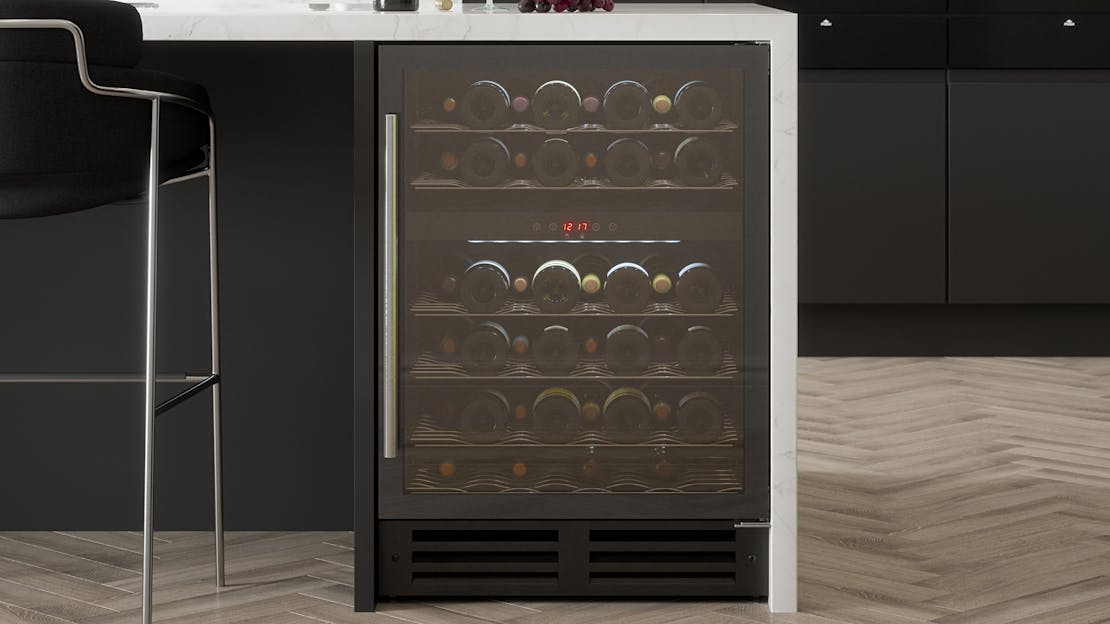
The Ultimate Wine Cooler Guide
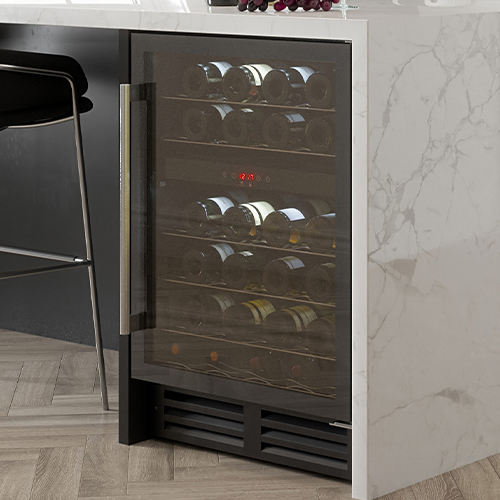
Welcome to the ultimate guide to wine coolers. Whether you're a wine enthusiast, a budding collector, or simply someone who enjoys a perfectly chilled glass of wine, this comprehensive guide is here to provide you with all the information you need to make the most out of your wine cooling experience. From understanding the benefits of wine coolers to choosing the right size and style for your needs, from tips on proper installation to optimizing storage conditions, we've got you covered. Get ready to elevate your wine collection, preserve its quality, and indulge in the perfect pour every time with the help of this definitive wine cooler guide. Let's dive in!
What size wine cooler do I need?
Determining the appropriate size of a wine cooler depends on various factors, including the number of wine bottles you plan to store and the available space in your home. Here are some guidelines to help you decide:
Consider the types of wines: Different wine bottles come in varying sizes, such as standard 750ml bottles, magnums (1.5 litres), and half-bottles (375ml). If you have a significant number of larger-sized bottles, you may need a cooler with adjustable or larger shelves to accommodate them.
Available space: Measure the area where you intend to place the wine cooler. Ensure you have enough space for the cooler's dimensions, taking into account any required clearance for ventilation.
Capacity options: Wine coolers come in various sizes, typically measured by the number of standard 750ml bottles they can hold. Common sizes range from small units that store around 12 to 20 bottles, medium-sized coolers for 30 to 50 bottles, and larger models that can hold 75 or more bottles.
Future growth: If you anticipate your wine collection expanding significantly, it might be wise to choose a slightly larger capacity than your current needs to allow for future acquisitions.
Dual-zone coolers: If you have a diverse wine collection that includes both red and white wines, consider a dual-zone wine cooler. These units have separate temperature zones, allowing you to store different wines at their respective ideal temperatures.
By considering these factors, you can determine the appropriate size of a wine cooler that suits your collection size, available space, and future requirements.
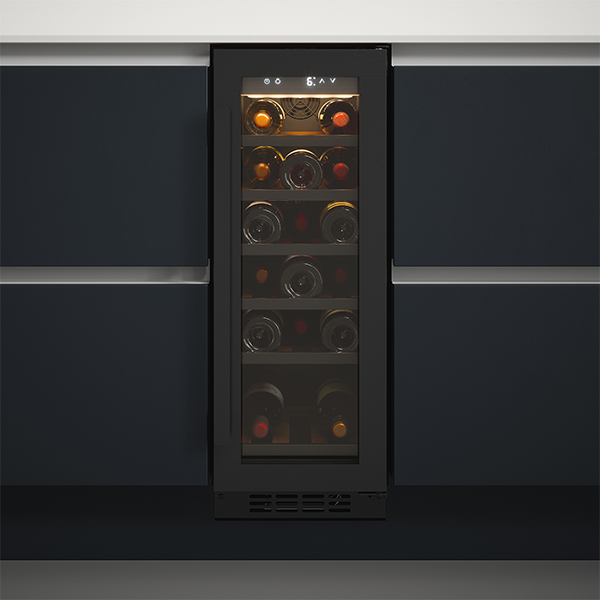
Wine Cooler vs Wine Cellar
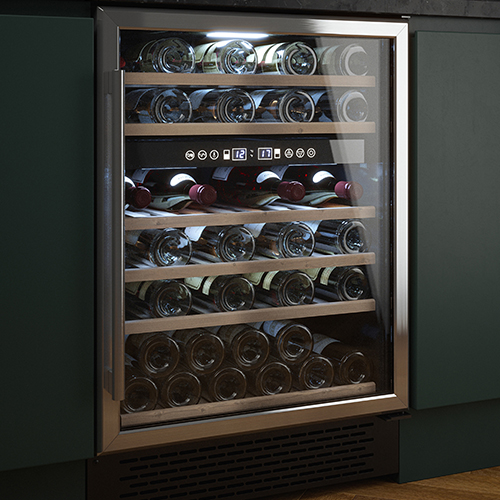
A wine cooler is designed for short- to medium-term storage, providing controlled temperatures for easy access to your wine collection. It is compact and suitable for wine enthusiasts who enjoy consuming wines soon after purchase. On the other hand, a wine cellar is a dedicated space for long-term storage, accommodating larger collections and prioritizing stable temperature conditions for aging and flavour development.
How do I install a wine cooler?
Installing a wine cooler requires a few steps to ensure proper functioning and optimal performance. Here's a general guide on how to install a wine cooler:
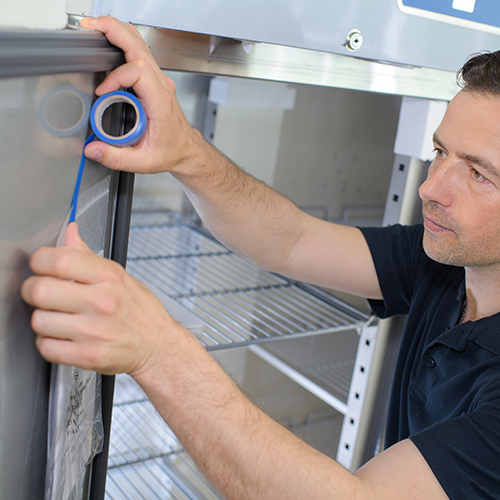
Choose a suitable location: Select a location for your wine cooler that is well-ventilated, away from direct sunlight, and free from excessive heat sources or extreme temperature fluctuations. Ensure there is enough clearance around the unit for proper air circulation.
Check the power requirements: Review the power requirements of your wine cooler, including voltage and amperage. Make sure the electrical outlet near the installation location meets these specifications.
Prepare the area: Clear and clean the designated installation area. Remove any obstructions or debris that could hinder the installation or operation of the wine cooler.
Level the wine cooler: Use a level to ensure the wine cooler is perfectly horizontal. Adjust the levelling feet or use shims as necessary to achieve a balanced position.
Plug in the wine cooler: Connect the wine cooler to the power source, following the manufacturer's instructions. Ensure the power cord is properly inserted into the outlet and is not twisted or damaged.
Allow for ventilation: Wine coolers generate heat while operating, so it's important to provide adequate ventilation. Leave sufficient space behind and around the unit to allow air to circulate freely. Refer to the manufacturer's guidelines for specific ventilation requirements.
Set the temperature: Once the wine cooler is properly installed, set the desired temperature according to the wine type and your preferences. Allow the cooler some time to stabilise and reach the desired temperature before loading it with wine bottles.
Load the wine cooler: Organise and place your wine bottles inside the cooler, taking care not to overcrowd the shelves. Maintain proper spacing between bottles for air circulation and easy access.
Monitor and maintain: Regularly monitor the temperature and humidity levels inside the wine cooler, and adjust settings as needed. Keep the interior clean by wiping down shelves and surfaces periodically. Follow any additional maintenance instructions provided by the manufacturer.

It's important to note that specific installation steps may vary depending on the model and manufacturer of your wine cooler. Always refer to the manufacturer's instructions and guidelines provided with the unit for accurate installation procedures. If you are unsure or uncomfortable with the installation process, it's recommended to consult a professional for assistance.
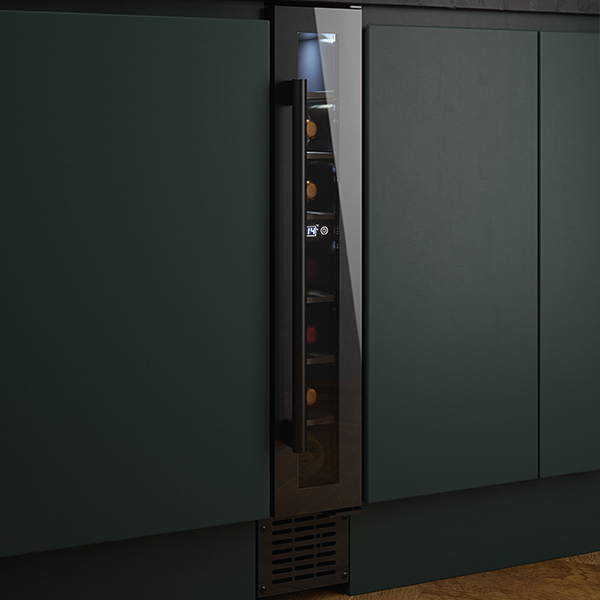
Why use a wine cooler?
A wine cooler offers several advantages for storing and enjoying your wine collection. One of the key benefits is temperature control, as wine coolers allow you to set and maintain the ideal temperature for optimal aging or serving. This ensures that each bottle is stored at its recommended temperature, preserving the wine's flavour, aroma, and quality over time.
Additionally, wine coolers provide a stable and controlled environment, protecting your wines from temperature fluctuations, heat, and light exposure. This preservation is crucial for wines that benefit from aging, as it allows them to develop complexity and reach their full potential. With consistent temperature and humidity levels, a wine cooler creates the ideal conditions for gradual maturation.
Another advantage of using a wine cooler is the convenient storage it offers. These coolers come with specialised shelves and racks that keep your bottles organised and secure. This not only makes it easier to access and display your collection but also prevents any movement or disturbance that could affect the wines' quality.
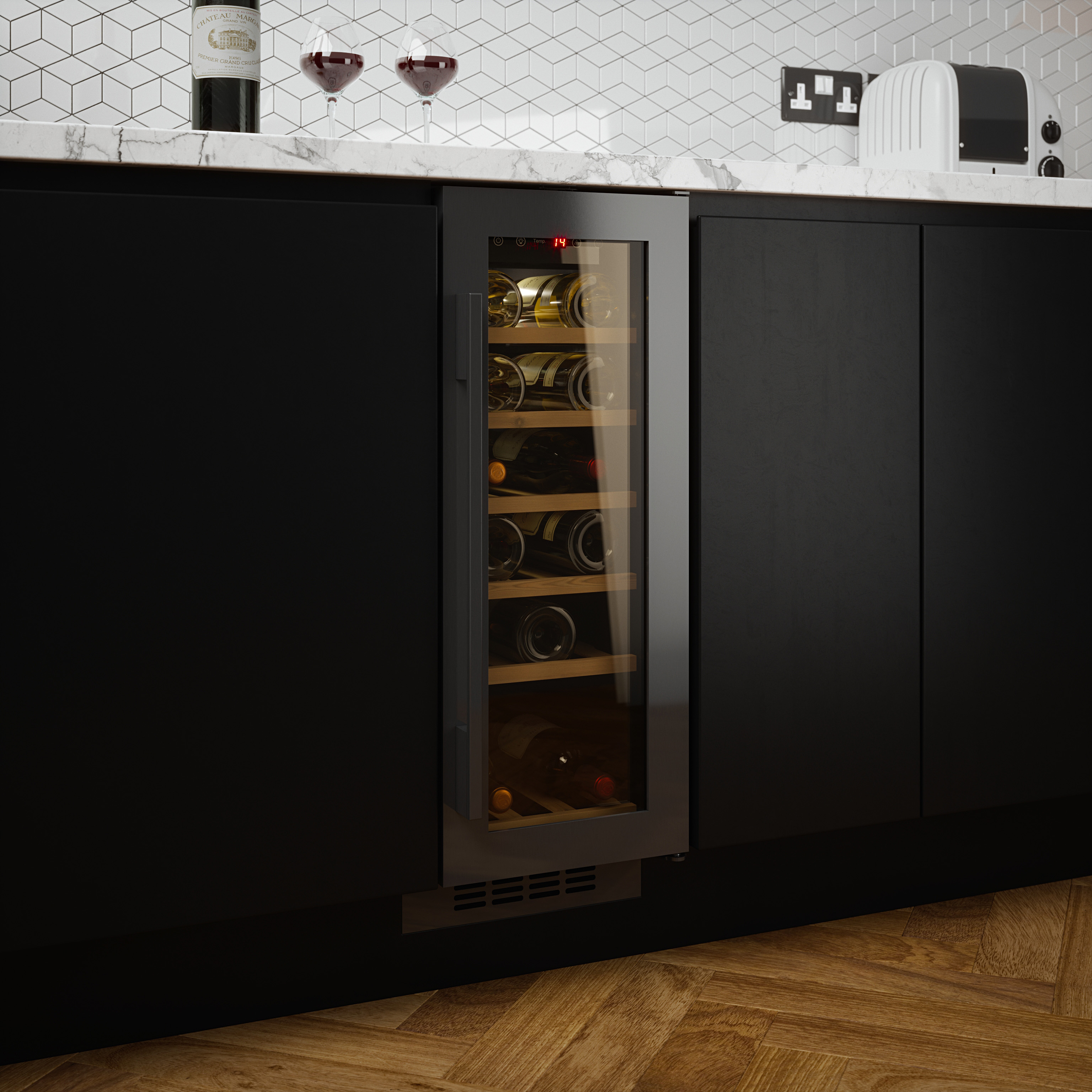
Wine coolers are available in various sizes and designs to suit different spaces and preferences. From compact countertop units to built-in or freestanding models, you can find a wine cooler that fits your available space and complements your home décor.
Energy efficiency is another noteworthy feature of wine coolers. They are designed to consume minimal power while still maintaining the desired storage conditions. This allows you to store your wines without significantly impacting your energy bills.
Lastly, wine coolers provide the convenience of serving wines at their optimal temperatures. Whether you're hosting a wine tasting or enjoying a bottle with friends, a wine cooler ensures that your wines are cooled or chilled to the right temperature for maximum enjoyment.
In summary, using a wine cooler offers benefits such as temperature control, preservation of wine quality, aging potential, convenient storage, versatile design options, energy efficiency, and the ability to serve wines at their best. These advantages contribute to the overall pleasure and longevity of your wine collection.
Where is the best place for your wine cooler?
The best place for your wine cooler is a cool, dry, and well-ventilated location away from direct sunlight, heat sources, and excessive vibrations. Choose a level surface with easy accessibility and consider noise levels. Following manufacturer guidelines ensures optimal performance.
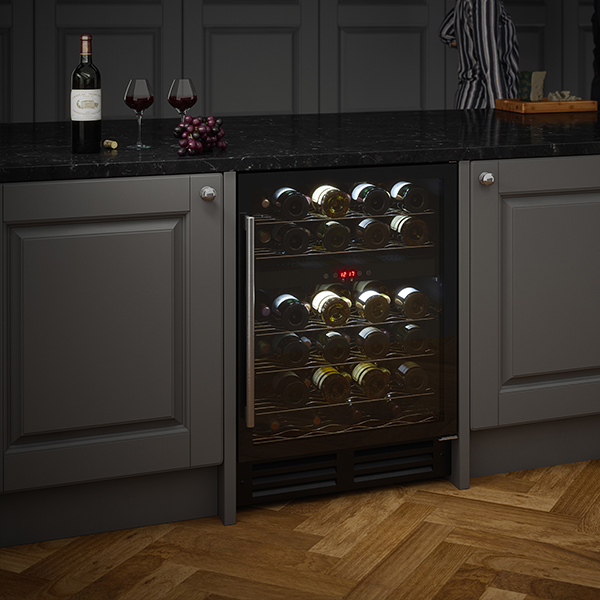
Freestanding vs Integrated
The main difference between integrated and freestanding wine coolers lies in their installation and design:
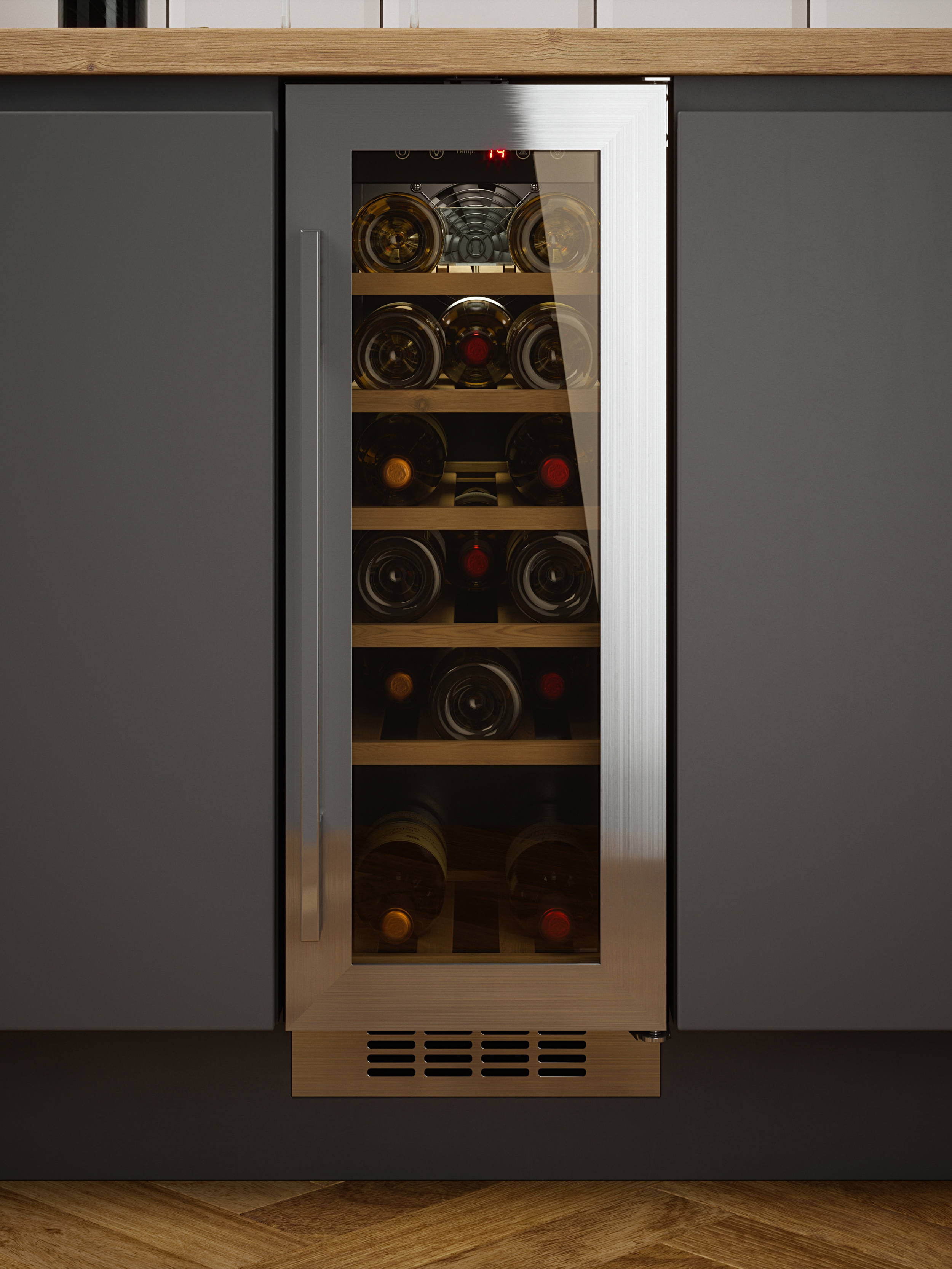
Installation: Integrated wine coolers are designed to be built into cabinetry or installed under countertops with a seamless and integrated look. They are typically installed with a front venting system to allow proper air circulation and heat dissipation. Freestanding wine coolers, on the other hand, are standalone units that can be placed anywhere in your living space without the need for built-in installation.
Design: Integrated wine coolers are designed to blend seamlessly with the surrounding cabinetry and kitchen décor. They often feature a front-facing vent and a reversible door to match the aesthetic of the cabinetry. Freestanding wine coolers have a standalone design, often with stylish finishes and glass doors to showcase the wine collection.
Placement: Integrated wine coolers are primarily intended for installation in kitchen cabinetry or custom-designed spaces. They are commonly integrated into kitchen islands, under countertops, or within dedicated wine cellar rooms. Freestanding wine coolers offer more flexibility and can be placed in various locations, such as dining rooms, living rooms, or home bars, as standalone units.
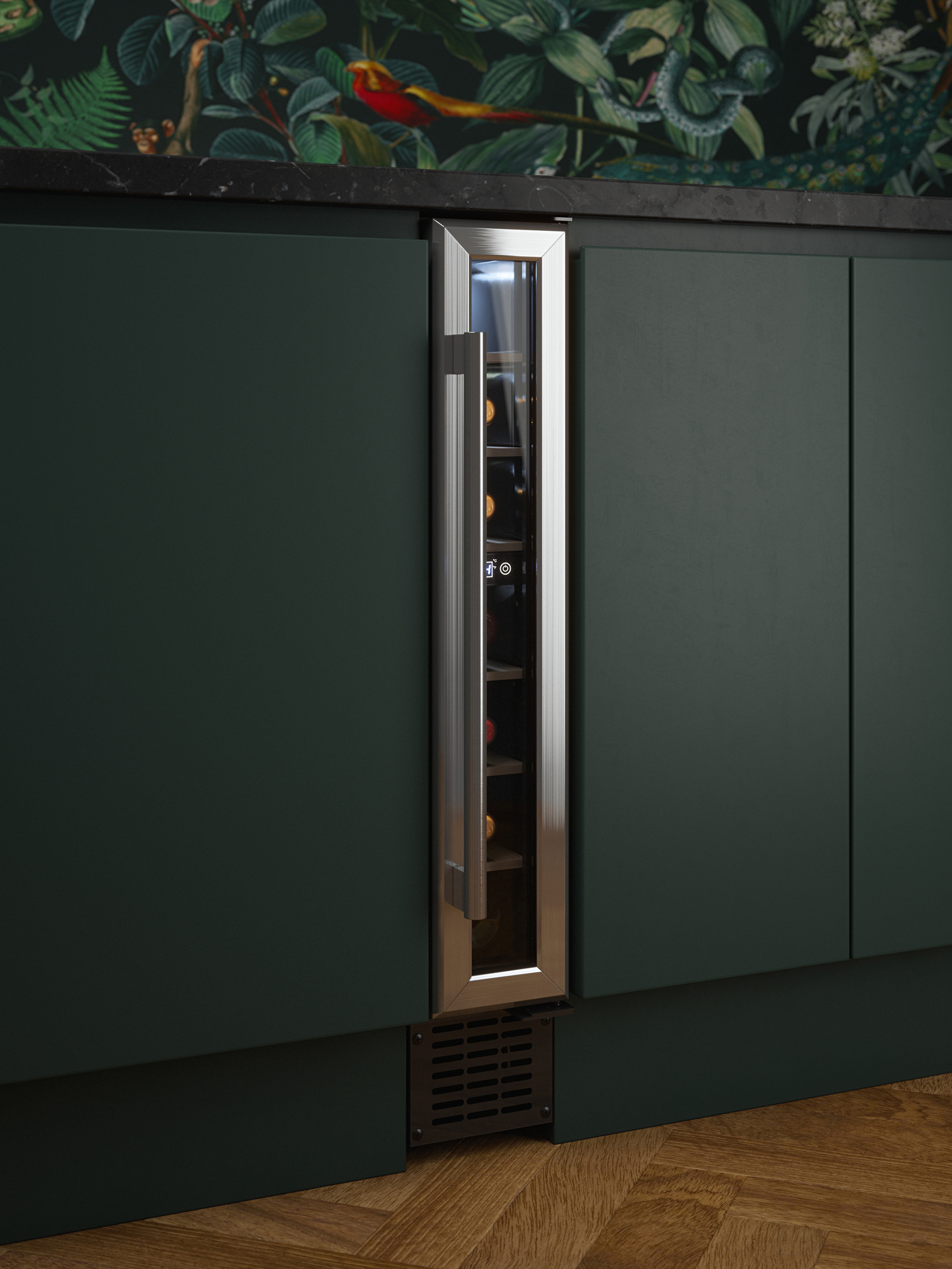
Ventilation: Integrated wine coolers typically have front venting systems, which allow them to be installed seamlessly within cabinetry without obstructing airflow. Freestanding wine coolers generally have rear or side venting, allowing them to be placed in open spaces without specific installation requirements.
Size and Capacity: Both integrated and freestanding wine coolers come in a range of sizes and capacities to accommodate different wine collections. The available sizes and bottle capacities can vary for each type, allowing you to choose based on your storage needs and available space.
When deciding between integrated and freestanding wine coolers, consider your kitchen or living space layout, design preferences, and the desired installation options. Integrated wine coolers provide a cohesive and custom look within cabinetry, while freestanding wine coolers offer versatility and can be placed anywhere in your home.
What is the difference between a wine cooler and a wine fridge?
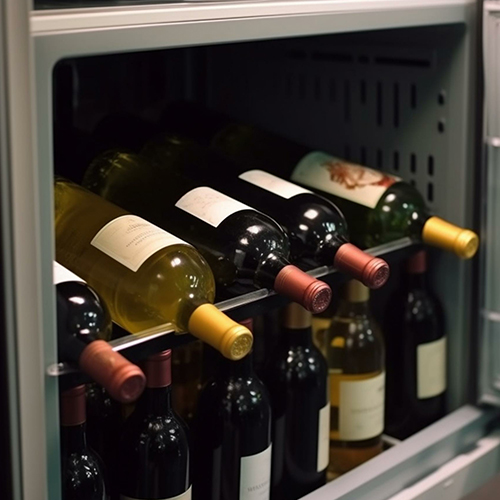
The terms "wine cooler" and "wine fridge" are often used interchangeably to describe refrigerated units designed for storing and cooling wine bottles. While there can be some subtle differences, they generally serve the same purpose. Both provide temperature control, with wine fridges typically offering more precise temperature control through compressor-based cooling systems. The design, features, and terminology may vary, but the fundamental goal of both is to store wine at the desired temperatures.
Is a wine cooler worth it?
The value of a wine cooler depends on individual preferences and needs. If you have a growing or valuable wine collection, a wine cooler can provide optimal storage conditions, precise temperature control, and convenient access to your wines. It ensures the preservation of quality, enhances the wine experience, and offers space organization. Additionally, for those interested in aging wines or hosting frequent wine events, a wine cooler can be a worthwhile investment that adds convenience and demonstrates a commitment to wine enjoyment.
What are the ideal storage conditions to keep wine

To keep your wine in optimal condition, it's crucial to maintain ideal storage conditions. This includes a consistent temperature between 6°C and 18°C, a relative humidity level of 50% to 70%, protection from direct sunlight and excessive light exposure, minimizing vibrations, storing bottles horizontally or at a slight angle, ensuring proper ventilation, and avoiding strong odours in the vicinity. By following these guidelines, you can preserve the quality, flavour, and aging potential of your wines.
Are wine coolers expensive to run?
Wine coolers generally have energy-efficient designs, so they are not overly expensive to run. The energy consumption can vary depending on factors such as the size of the unit, insulation quality, cooling technology, and usage patterns. Wine coolers that utilise thermoelectric cooling tend to be more energy-efficient than those with compressor-based systems. Additionally, newer models often incorporate advanced technologies for improved energy efficiency. While there will be some impact on your energy bills, it is typically reasonable and manageable. It's advisable to look for energy-efficient models and check the product specifications or energy labels to get a better understanding of their energy consumption and operating costs.
Are wine coolers noisy?
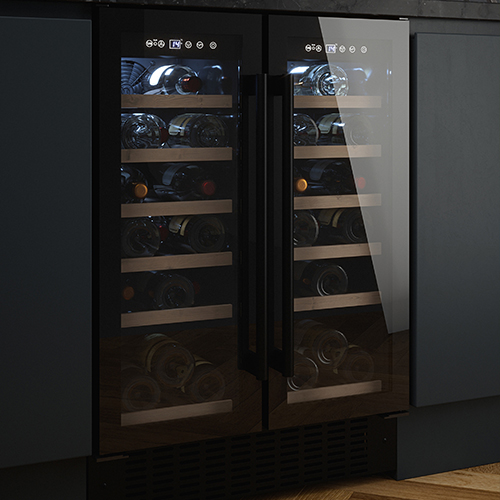
The noise level of wine coolers can vary depending on the model and cooling technology used. Thermoelectric wine coolers tend to be quieter compared to compressor-based ones. However, even compressor-based wine coolers have sound-dampening features to minimise noise. It's important to note that all cooling systems produce some level of noise during operation. The noise level is typically within acceptable limits and shouldn't be overly disruptive. If noise is a concern for you, it's recommended to review product specifications, customer reviews, or manufacturer information to get an idea of the noise level associated with a specific wine cooler model.
How noisy is a wine cooler?
On average, a wine cooler can produce a noise level ranging from 30 to 50 decibels (dB). To provide some context, here are approximate noise levels for comparison:
- 30 dB: Whisper or very quiet library.
- 40 dB: Quiet room, refrigerator humming.
- 50 dB: Moderate rainfall, background conversation.
Keep in mind that the noise level can be subjective, and what one person considers quiet, another may find noisy. Additionally, the noise may vary depending on the specific wine cooler's design and the environment in which it is placed. For a quieter wine cooler, look for models with noise-reducing features and check customer reviews for noise complaints before making a purchase.
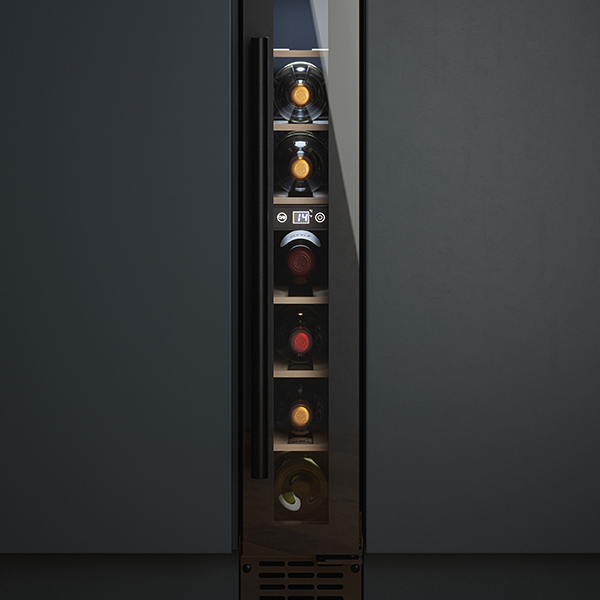
What are the common causes of noisy wine coolers?
Compressor Noise
The compressor is a crucial component in a wine cooler and can emit a humming or buzzing noise during its regular operation. However, if the noise is excessively loud or irregular, it may suggest a problem with the compressor motor or its mounting. Compressor issues should be addressed by a qualified technician.
Vibration
Vibrations from the compressor or other internal components can generate noise. Many wine coolers come equipped with vibration-damping technology to reduce this noise. If your wine cooler is excessively noisy due to vibrations, you can try placing vibration-absorbing pads or materials beneath the unit to mitigate the effect.
Fan Noise
Wine coolers often feature internal fans that aid in distributing cool air and maintaining consistent temperatures. If the fan produces excessive noise, it could be due to a faulty motor or loose blades. Replacing or repairing the fan can resolve this issue.
Loose Parts
Over time, various components within the wine cooler may become loose. This can include shelving, internal fans, or even the compressor itself. Regular maintenance checks can help identify loose parts and secure them to reduce noise.
Location
The wine cooler's placement can influence its noise level. Placing it on an uneven surface or near a source of external vibrations (e.g., a washing machine) can make it noisier. Ensure the unit is positioned on a level, stable surface, away from other sources of vibration.
Dirt and Dust
Accumulated dirt and dust on the condenser coils or internal components can force the wine cooler to work harder and produce more noise. Regular cleaning can help reduce noise and enhance efficiency.
Age and Wear
Like any appliance, wine coolers can become noisier as they age or if specific components wear out. In such cases, it might be necessary to consider replacing or repairing the affected parts.
If your wine cooler is excessively noisy and the cause isn't readily apparent or easily resolved with simple maintenance, it's advisable to consult a professional technician or the manufacturer's customer support for a thorough inspection and repair. Regular maintenance and keeping the unit clean can go a long way in preventing and reducing noise issues.
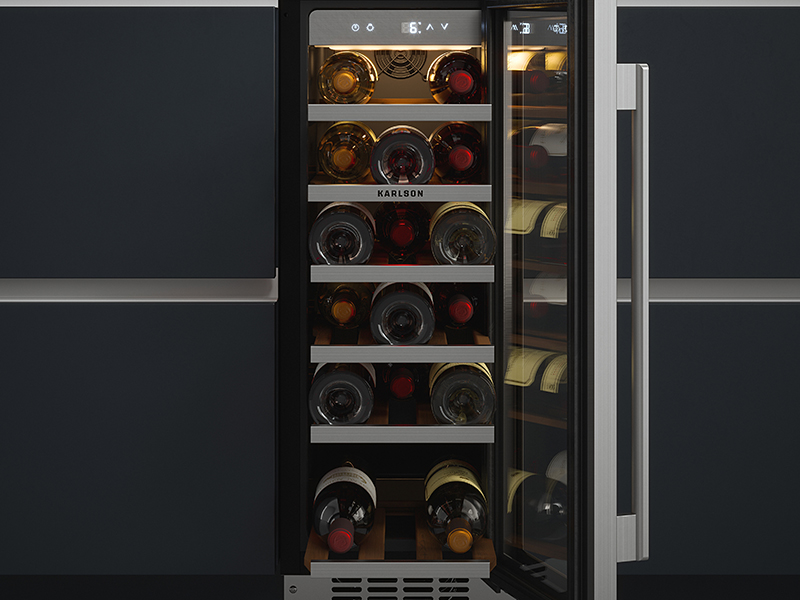
How can you fix a noisy wine cooler?
To address a noisy wine cooler, begin by pinpointing the source of the noise, which could originate from the compressor, fan, or loose components. Thoroughly clean the cooler's coils and internal parts to eliminate dust and dirt build-up, and firmly secure any loose shelves or racks. If vibrations are causing the noise, consider using vibration-absorbing pads, ensure the cooler rests on a level surface, and examine the fan for potential obstructions or damage. Adjust the temperature settings if necessary. In cases where the noise persists or suggests compressor issues, it's advisable to seek professional assistance from a technician, especially if the unit is still under warranty.
Are wine coolers made for beer?
While wine coolers are primarily designed for storing and cooling wine bottles, they can also be used to store and cool other beverages, including beer. Wine coolers offer a controlled environment with temperature settings that can be adjusted to suit the desired serving temperature for beer. However, it's important to note that wine coolers may not be specifically optimised for beer storage, as beer typically requires cooler temperatures compared to wine. Additionally, the design and configuration of wine coolers, such as specialised wine racks, may not be ideal for beer bottles. If you plan to primarily store and cool beer, it may be more suitable to consider a dedicated beverage cooler or beer refrigerator that is specifically designed for optimal beer storage and temperature control.
Can champagne bottles fit in wine coolers?

Yes, champagne bottles can typically fit in wine coolers. Most wine coolers are designed with adjustable shelving or removable racks to accommodate different bottle sizes, including champagne bottles. These coolers often have the flexibility to adjust the spacing between shelves or remove shelves altogether to accommodate taller bottles. However, it's worth noting that champagne bottles are generally larger and wider than standard wine bottles, so it's important to check the specifications and dimensions of the wine cooler to ensure it can accommodate champagne bottles without any issues. Slimline (15cm) models typically will not be able to fit champagne bottles.
Top Selling Wine Coolers from MyAppliances
Explore our sophisticated wine coolers, designed to preserve and chill your collection with precision and elegance. From compact slimline units to luxurious dual zone models, each wine cooler features precise temperature controls and innovative technologies to maintain your wines' quality. Elevate your wine experience with our exceptional selection.
Cooling Buying Guides - Helping you choose the right cooler
Cooling Buying Guides - Helping you choose the right cooler
Whether you're a first-time buyer or in need of a replacement, choosing the perfect fridge freezer requires careful consideration. Factors such as size, split type, and features are essential. If you're looking for a wine cooler, we've got you covered. Our comprehensive guide will help you navigate through the options and choose from three excellent wine cooler options that meet your specific needs and elevate your wine storage experience. Cheers to finding the perfect wine cooler for your collection.
![The Ultimate Wine Cooler Buying Guide]()
Check out our ultimate guide to wine coolers. Whether you're a wine enthusiast, a budding collector, or simply someone who enjoys a perfectly chilled glass of wine, this comprehensive guide is here to provide you with all the information you need to make the most out of your wine cooling experience.
![Wine Cooler Buying Guide]()
Indulge in the world of wines, whether you're a seasoned sommelier or simply enjoy the occasional sip. Our comprehensive wine cooler buying guide is here to assist you in discovering the perfect cooling solution for your prized wine collection.
![Integrated Fridge Freezer Buying Guide]()
Whether you're looking for a fridge, a freezer or a combination fridge freezer, then look at the great selection we have on offer at excellent prices.

